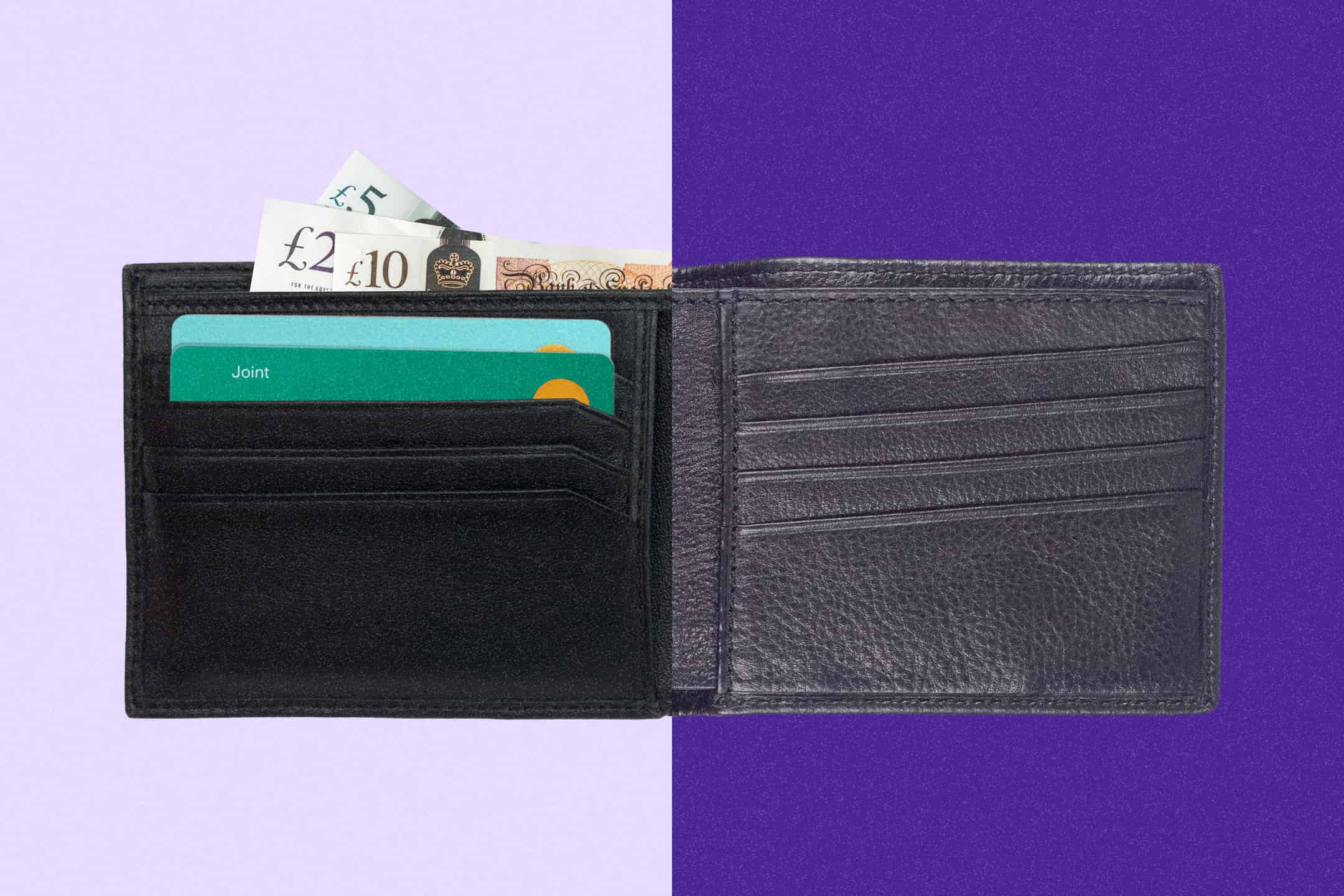
Property
Otegha Uwagba on homeownership
By Otegha Uwagba
Salaries

When I read a story on the Go Fund Yourself Instagram account about a 22-year-old who had saved £100k, the detail that stood out to me was their starting salary: £37k. Why? Because the person profiled hadn’t acknowledged this as “a flipping amazing starting point” – which is what I left as a comment that soon received hundreds of likes in agreement.
Talking about salaries remains a taboo, especially in the UK. Is it possible that this person didn’t realise £37k puts them in the top third for their age bracket? And is this lack of transparency contributing to what’s being described as ‘money dysmorphia’?
Recently, there’s been a growing conversation on an individual’s perception of wealth versus their actual wealth – partly due to the cost of living crisis. But what else is at play?
Average salary by age in the UK*
| Age bracket | Average gross salary | Gross salary - top 30% | Gross salary - top 10% |
|---|---|---|---|
| 18-21 | £22,306 | £24,904 | £31,195 |
| 22-29 | £34,724 | £37,425 | £50,000 |
| 30-39 | £45,105 | £48,500 | £70,383 |
| 40-49 | £50,927 | £53,375 | £81,790 |
| 50-59 | £50,284 | £51,192 | £79,795 |
| 60+ | £46,524 | £45,174 | £70,087 |
*Average UK salary by age before tax, compared to the pre-tax salaries that would put someone in the top 30% and top 10% of earners for each age bracket. This 2024 provisional data for full-time UK jobs comes from the Annual Survey for Hours and Earnings (ASHE), published by the Office for National Statistics (ONS).
Money dysmorphia is the name for a disconnect between someone’s salary or assets and their financial behaviour or mindset. For example, a high earner may experience spending anxiety every time they buy something, even though they can afford it. Or there may be a mismatch between someone’s income and someone’s expensive lifestyle – a problem that may go unacknowledged or unaddressed as a result of ‘money dysmorphia’.
It’s not a medical diagnosis – but it’s hitting a nerve. Between January 2024 and January 2025, there’s been a 136% increase in Google searches on ‘money dysmorphia’.
There are a number of factors that come into determining what a ‘good’ wage is – and your perception of it. These include: your age, the industry you work in, your basic outgoings (rent/mortgage, bills, food, travel) and where you live.
Real life examples of these regional differences played out in a 2024 Reddit thread, started by a 27-year-old earning £37k who asked: “If you’re mid-career and doing pretty well compared to everyone else, what kind of salary should you be shooting for?”
UK average salary by region*
| Region | Average gross salary | Gross salary - top 10% |
|---|---|---|
| London | £65,994 | £105,146 |
| South East | £46,006 | £74,189 |
| East | £44,093 | £70,052 |
| Scotland | £43,425 | £66,995 |
| West Midlands | £41,482 | £61,713 |
| North West | £41,105 | £65,572 |
| South West | £40,509 | £63,735 |
| Yorkshire and The Humber | £39,732 | £62,733 |
| Northern Ireland | £39,612 | £60,098 |
| East Midlands | £39,271 | £61,599 |
| North East | £38,321 | £59,640 |
| Wales | £38,295 | £57,750 |
| UK average | £45,836 | £72,150 |
*Average UK salary by region before tax, compared to the pre-tax salaries that would put someone in the top 10% of earners for their region. This 2024 provisional data for full-time UK jobs comes from the Annual Survey for Hours and Earnings (ASHE), published by the Office for National Statistics (ONS).
Someone from “a town just outside Glasgow” replied: “Even on £30k you’d be fine, [you could] afford a flat on your own and maybe even a house. If you were on £50k there you’d be absolutely minted!” This was confirmed by someone living in a three-bed house outside Glasgow: “Currently making 57K in financial management at 41 years old, which affords us a very nice lifestyle with lots of holidays.”
But for someone living in England earning £60k, it was a different story: “If you want to rent the cheapest house (3 bed), it’s £1,300 and that (of course) doesn’t include any taxes or bills. I’m happy if I have £200 at the end of the month.”
How you feel about money is often rooted in your childhood. For example, if you grew up in a home where you didn’t feel financially secure, you may carry this feeling into adulthood, as well as guilt around spending. For some people, no amount of money could make them feel ‘wealthy’ because they associate this with feeling financially secure.
For others, perhaps someone who is objectively wealthy but actually describes themselves as ‘broke’, it could be a language thing. Why? Well, the words ‘wealthy’ or ‘rich’ come with a lot of connotations – not always good. People may not want to declare themselves as being part of that camp – or they may not realise that they’re part of it because they’re always looking up. Let’s face it, unless you’re a tech billionaire, there’s always going to be someone ‘richer’ than you (and social media will make sure you know it).
Another factor that feeds into money dysmorphia is ‘lifestyle creep’. Heard ‘rich people’ claiming that they don’t feel ‘well-off’? It could be because they’ve spent more as they’ve earned more, sometimes to the point where they consistently have nothing at the end of the month. For some, this is because luxuries, such as high-end gym memberships or daily takeaway coffees, have become part of what they consider ‘essential’.
If you know you have an above average salary but don’t feel secure, ask yourself why. Is it because you struggle to build up savings? Is it because your bills are too high? Is it because you often spend more than you earn?
Starting and growing an emergency fund is almost always a good idea – just don’t keep on saving out of fear once you’ve reached your goal (the rule of thumb is to work out what your monthly essentials cost and save 3-6 times this).
Yes, the cost of essentials like council tax and energy has gone up – but not everything is an ‘essential’. Investing a little time in yourself by going through your spending history and making a few changes could make you feel a whole lot better about money.
If you’re a Starling customer, you can re-categorise your spending so it gives you a granular overview. Categories include ‘Drinks’, ‘Gaming’ and ‘Subscriptions’. You’ll also be able to see all your scheduled payments, including Direct Debits, standing orders and recurring card payments, in one place.
Once you reach a certain threshold, is ‘wealthy’ actually a mindset, rather than a number? Possibly. For some people, feeling ‘rich’ is far more about their work-life balance and mental health than it is their bank balance – provided they can pay for the roof over the head and the food on the table. Community, health and happiness all count for a lot – and none of them are bolted to what you earn.
* The 2024 provisional data from ASHE shows that someone aged 22-29 earning £37,000 a year before tax, would be in the top 30% for that age bracket (precise salary for this percentile: £35,292). If they had started on £37k when they were 21, this would have put them in the top 10%.
The article above includes general information and should not be taken as financial advice. If you have questions about your specific circumstances, please speak to an independent financial advisor.
Would keeping a closer eye on your money help you feel better about it? Starling customers get free Spending Insights that show what you’re spending where.
Explore our current account
Property
By Otegha Uwagba

Money truths
By Justin Quirk

How Much Does It Cost?
By Hannah Summers

Group holidays
By Kat Storr